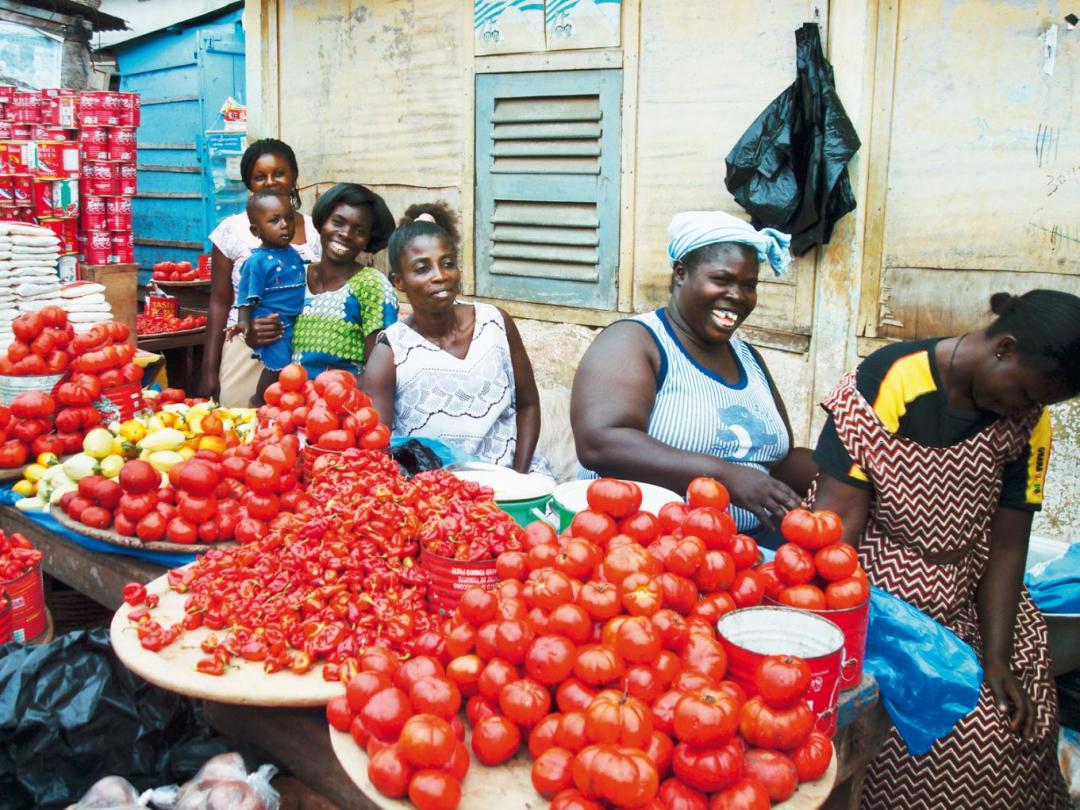Avoiding misconceptions through co-creation
Hello Nicky, please introduce yourself and the Food and Business Research programme.
My name is Nicky Pouw. I'm an associate professor in the Economics of Wellbeing and Inclusive Development at the University of Amsterdam. I did the Synthesis Report of the Food and Business Research programme, which is financed by the Dutch Scientific Council and the Ministry of Foreign Affairs to foster research on food and nutrition security. The report collects findings from 13 projects funded under the programme. In addition, I was principal investigator of the research project focusing on women food entrepreneurship in the urban slums of Burkina Faso and Kenya.
In the synthesis paper on inclusive business, you mention the “Triple A” of applicability, affordability and accessibility, which condition the viability of IB models. Could you elaborate on this point?
There is often a disconnect between the technical solutions introduced through inclusive business and their local adaptation by the people at the bottom of the pyramid. This disconnect is caused by a complex set of interrelated factors. Social economic barriers may make technical solutions unaffordable, while disconnects with local knowledges and contexts can limit their applicability. Also, institutional factors connected to culture or politics or can limit the accessibility of technical solutions.
Could you give an example?
In Burkina Faso, we worked with a formalised group of women entrepreneurs that produced, processed and marketed food together. One of their funders offered them an irrigation equipment set. From a purely technological point of view, this was a perfect solution to their drought problems. In terms of context, however, the equipment was not applicable at all. The plots of land the women worked on were far from their homes, so they could not supervise the fields at night. As a result, the equipment got stolen a few times over. In the end, they returned to more traditional ways of irrigation.
How can practitioners avoid such misconceptions when they start developing new inclusive business projects?
First, companies need a clear understanding of local needs and priorities. Second, they need to map what business initiatives are already out there and identify the key stakeholders. Third, they need to identify the constraining factors particular to the bottom of the pyramid. Fourth, they need to assess local knowledge and build on it. There are many innovative, home-grown ideas out there. The challenge is how to upscale and professionalize them.
To gain this kind of knowledge, companies need to engage in an iterative process of co-creation from the start. This process should include target groups and institutional actors that are already connected to these groups. The goal is to build trust and exchange knowledge on a level playing field.
How does co-creation work in practice?
First, inclusive business companies need to do a mapping of the base of the pyramid. They need to differentiate between survival entrepreneurs, who start a business merely to survive, and those who are more growth oriented. Both groups require different strategies.
Second, think about the spill-over effects that your business will have on the society you invest in. It could, for instance, crowd other entrepreneurs out. That may be undesirable for the local economy.
Third, take a stepwise approach. Your model will not be perfect from day one but needs to be developed over time. When you try to transform survival entrepreneurs into more growth-oriented ones, for example, the constraints may lie in a totally different and unexpected dimension. You may first need to provide childcare for women entrepreneurs, for instance. This makes shared learning so important.
Are there any other learnings entrepreneurs and policymakers can draw from the study?
In the countries we studied, policymakers were often blind to the constraints faced by the base of the pyramid. They also tended to overlook structural inequalities caused by issues like gender or ethnicity. Companies need to be conscious of that when they engage with policymakers.
There is a whole special issue of the Current Opinion in Environmental Sustainability journal, where you will find more findings and recommendations. The issue is open access.
The synthesis paper only focuses on small inclusive business companies in the agricultural sector. To what extent are your results transferable to other sectors and larger companies?
A lot of the findings are transferable. I can imagine that issues of scale and crowding out will be even more important to bigger companies. Also, while there is a lot of talk about upscaling in inclusive business, professionalisation must come first – especially when working with the base of the pyramid. Large companies and investors need to be aware of that.
